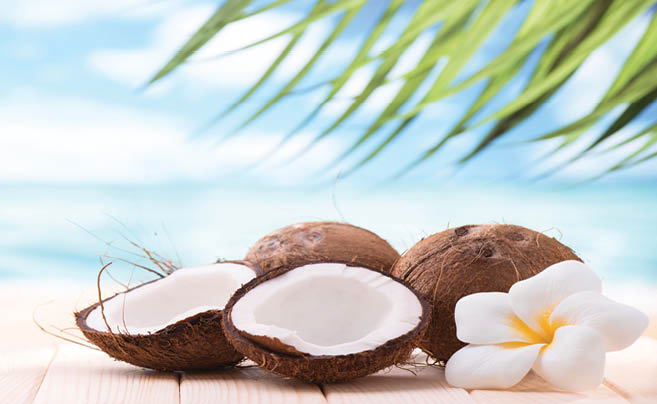On a tiny, solitary coral island in the Pacific Ocean, approximately 300 kilometres east of Nauru with an area of just six square kilometres, the versatile coconut is being used to help a community back on its feet after suffering from one of the greatest ecological and environmental disasters of the past century. Banaba Island was a community wiped out in the 1900s, destroyed by the discovery and subsequent mining of pure phosphate by governments in Australia, New Zealand, and the United Kingdom. Add to this an invasion by the Japanese in World War II when a fifth of the Banaban population was slaughtered and the remaining people were forced to take refuge and relocate to Rabi Island and Fiji.
As a descendant of the European phosphate miners who played an integral part in the destruction of the Banabans’ homeland, I’ve had a passion for retracing the four generations of my family’s history and discovering the rich heritage of the intriguing Banaba community. And as a native Banaban himself, my now husband Raobeia ‘Ken’ Sigrah—whose own grandfather had been the signatory on the original mining contract, placing his ‘X’ to give the island away for 999 years at 50 pounds per annum—has a deep connection to his homeland.
These facts and our shared vision to redevelop the forsaken island were the catalyst for our passion to help the Banaban people achieve a sustainable future, and the driving force behind the philanthropic work our company, Nature Pacific, undertakes. The year 2004 saw the beginning of our virgin coconut oil business when we marketed the oil produced by extended family in Fiji in the hope of educating people here in Australia about the benefits of coconuts and the oil that our people had been using for centuries.
Our shared vision to redevelop the forgotten island was the catalyst for our passion to help the Banaban people achieve a sustainable future, and the driving force behind the philanthropic work our company, Nature Pacific, undertakes.
The full article can be downloaded below…







